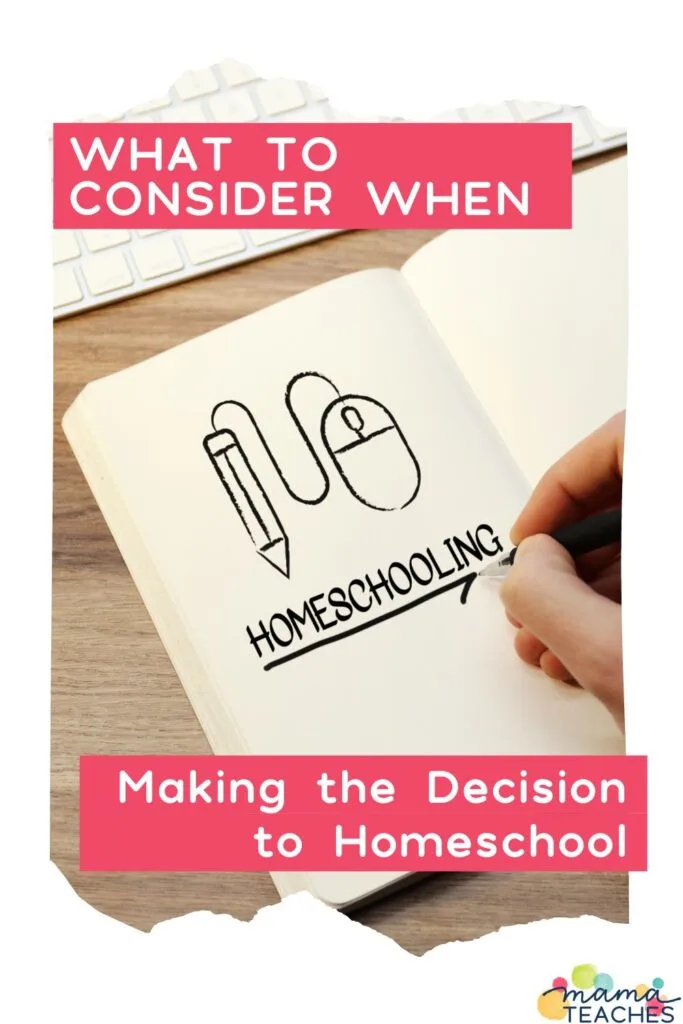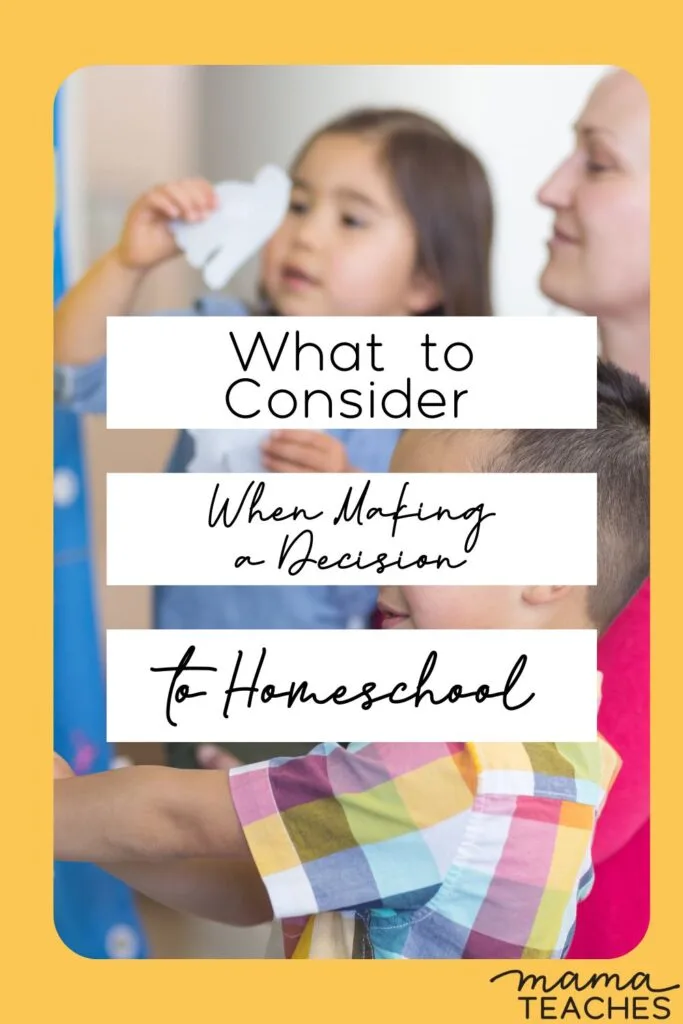Is homeschooling right for your family?
Here are the key items to consider when making a decision to homeschool.

This article contains affiliate links to things that you might like.
Weighing Your Options: Making a Decision to Homeschool
No educational choice is 100% perfect.
The question isn’t, “Is homeschooling the best way to educate kids?” but rather “Is this the right choice for my family?”
Consider taking the quiz in Homeschool vs. Public School as a starting point.
You can also read about homeschooling’s advantages and disadvantages.
How do you know you are ready to make the decision to homeschool?
You go in with your eyes open; you consider the important points.
Top Considerations When Deciding to Homeschool
Here are the 8 main concerns when deciding whether or not to homeschool.
State Laws
Some states are very open to homeschooling (Alaska even gives you money for books!), while others require a lot of paperwork, assessment, and oversight.
Check with the Homeschooling Legal Defense Association (HSLDA).
They have a list of requirements for every state.
In every state, it is legal to homeschool, but you need to abide by the regulations in your particular state.

This article contains affiliate links to things that you might like.
Your Availability
As a homeschool parent, you are your child’s teacher (unless you commit to 100% virtual schooling).
Teachers must be available; there is no getting around that.
You don’t need to be constantly available, but you do need to be there to help, teach, or guide when necessary.
Plenty of parents work from home and homeschool at the same time, but you need to have a situation that is flexible.
You can also homeschool your older kids while caring for a baby or toddler, but it will require some creative scheduling.
Family Finances
Homeschooling usually requires some financial sacrifice.
You will need to purchase books and materials and pay for co-op fees or extra classes.
One parent may need to cut or eliminate their work hours outside the home, which means family finances will take a hit.
Homeschooling is an investment in your children; it is not a boost to your budget (unless you are pulling your kids out of private school or daycare).
Choosing Curricula
One of the most daunting parts of homeschooling is choosing curricula.
The good news is that homeschooling is more popular than ever, and you have loads of choices.
The bad news is the same: you have loads of choices.
It is easy to feel overwhelmed.
Check into your curricula options before you decide to homeschool.
By all means, poll others about what they use, but go with something that you and your kids are excited about and that you can easily implement.

Your Child’s Attitude
Your child’s attitude can color your homeschooling experience.
If you have a child who is reluctant or downright against the decision to homeschool, he will see you as his adversary if you push for it.
That is not to say you can’t win him over in time, but it will make the beginning a challenge.
You should at least consider his feelings before you make the decision to homeschool.
Finding Friends Who Homeschool
Homeschooling is a bit of a misnomer.
Yes, you school at home, but it is also important that you leave the house to socialize with friends.
Do you have any support organizations in your area?
Are there groups that meet at the park or go on field trips together?
Having a pool of potential friends and supporters can make all the difference in the success and happiness of your homeschool.
Accommodating Learning Differences and Special Needs
Schools provide convenient access to therapies and reading specialists.
If your child needs speech or occupational therapy, you will have to drive her to those practitioners.
On the other hand, you will be able to provide the one-on-one attention that your child may crave.

Adapting to a New Schedule/Lifestyle
Homeschooling isn’t just an educational choice; it’s a whole lifestyle.
You are with your children all day, every day.
That means cooking, cleaning, and exercise have to fit in new pockets of time (or get pushed off to another day).
Do you need to run an errand?
If your children are small, you will have to bring them along.
The plus side is that the school calendar is now your family calendar.
You can take breaks and trips when it suits your schedule.
You can even school at different times during the day.
Choosing to Homeschool: The Factors You Should Consider
Although you should take the time to consider the above list before you make the decision to homeschool, know that any decision can be undone.
If you homeschool for a few months and it doesn’t suit your family, you can always go back to traditional school.
